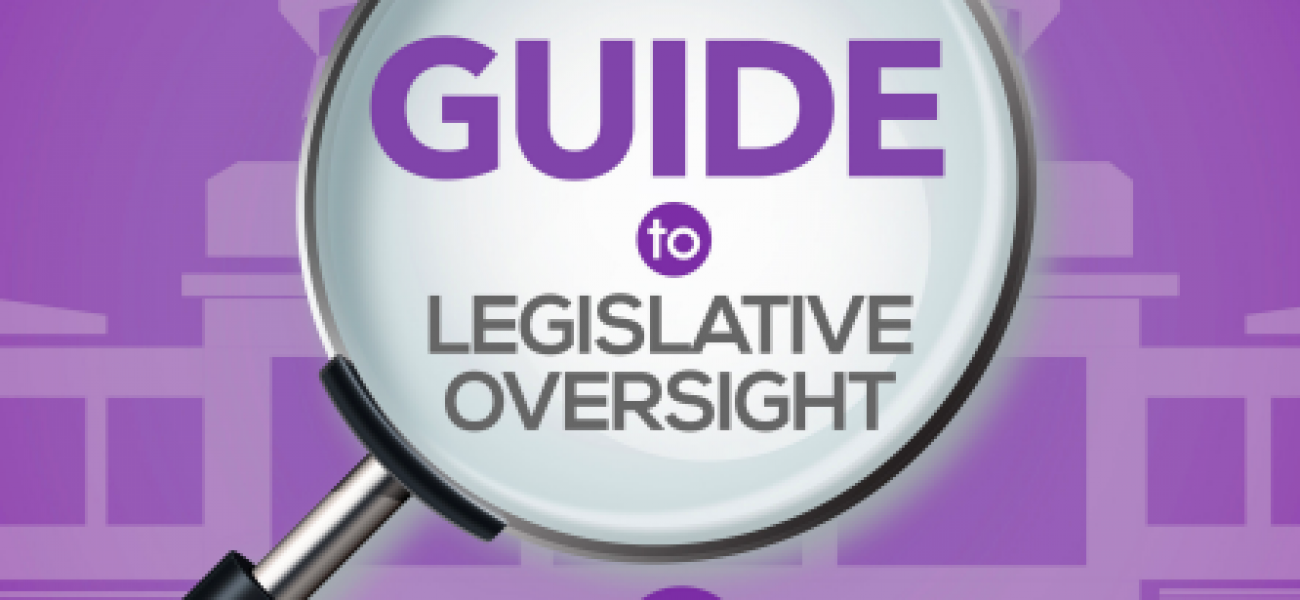Oversight is one of the functions of the legislature. Legislative oversight is a tool used by the legislature to perform its role of checks and balances in a democracy. It entails reviewing, monitoring and evaluating selected activities, programmes and policy implementation strategies of the executive branch of government. After making laws, the legislature’s main role is to see whether laws are effectively implemented and whether the laws capture the intent of their drafters. The Committee structure of the National Assembly (Senate and House of Representatives) is used to execute oversight functions and ensure that activities of the executive arm of government and its agencies are kept under constant surveillance and scrutiny by the legislature. The oversight powers of the National Assembly are enshrined in sections 88, 89, 128 and 129 of the 1999 Nigerian Constitution.
In recent times, the leadership of the National Assembly has often been criticised for cozying up to the executive arm of government, a situation that makes it difficult to hold the government accountable. Not much has been seen in certain critical areas that the National Assembly is expected to pay particular attention to in the exercise of its oversight powers. One is the situation of the multiple budgets being run by the Executive in 2024. Ahead of a new budget presentation, it may be imperative for the National Assembly to scrutinse government spending, to ensure that it is in line with the three budgets being run concurrently and inform its debate on the 2025 Appropriation Bill that the President is expected to present. Another area is the petroleum industry, which has been riddled with allegations of malpractices and even a claim that petrol subsidy was still being paid after the government declared that it had been removed. This is particularly important in the light of the rising costs of petroleum products amidst harsh economic conditions, and the failed promises of revitalisation of moribund Nigerian refineries.
Several ad-hoc Committees have been set up in the Senate and House of Representatives to investigate malpractices in the sector. However, previous occasions have shown that these investigations do not usually yield much result apart from their findings being publicised.
Another important area of oversight is audit queries. Section 85(2) of the Nigerian Constitution requires that the audit reports of the public accounts of the Federation and all offices and courts of the Federation be submitted to the National Assembly by the Auditor-General of the Federation. This is a vital tool the National Assembly is expected to use to ensure that there is compliance with the intention of the Legislature in appropriation matters. It should be noted that the Constitution does not expressly specify what the National Assembly should do with such report. However, it can be implied that since the legislature appropriated the fund which the executive branch utilises, the audit reports would enable the National Assembly to see whether or not the executive has complied with the appropriate laws and the Appropriation Act.
Apart from the lack of political will, often times, Committees of the National Assembly are faced with other challenges affecting their ability to carry out effective oversight. One of such challenges is inadequate funding of Committees to go on oversight visits and carry out other oversight exercises. Another challenge is the refusal of personnel of government institutions to appear before a Committee of the National Assembly and to produce any paper, book, record or other documents in the possession or control of such persons, in line with section 4 of the Legislative Houses (Powers and Privileges Act), Laws of the Federation of Nigeria (LFN) 2004. Some other challenges include inadequate preparation and poor reporting by Committees.
To ensure that oversight yields the expected results, some of the conditions that need to be put in place include provision of sufficient funds for conduct of oversight with a fair sense of neutrality, independence and effectiveness; and the demonstration of patriotic and nationalistic will by legislators in the conduct of oversight.
For more information on legislative oversight, see PLAC’s Guide to Legislative Oversight in the National Assembly

